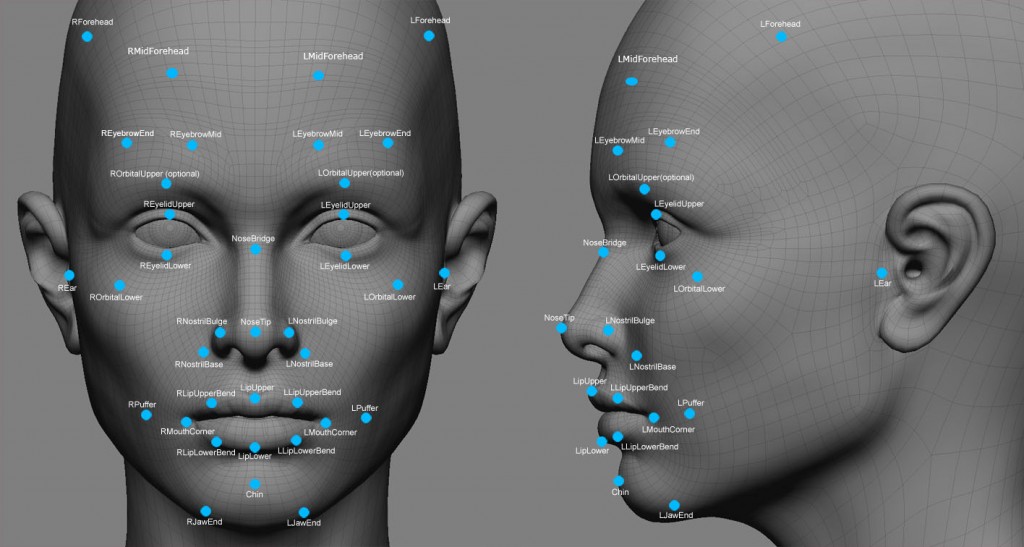 By Aaron Dykes
By Aaron Dykes
Facial recognition and biometric databases have been a reality in technology for decades, and have been used overseas by the military to assist in occupying potentially hostile populations in places like Iraq and Afghanistan.
Populations there not only face the possibility of becoming a statistical civilian casualty, but are processed and tagged like cattle as well.
Now, that paradigm is coming home to roost – as spy agencies like the NSA have long planned.
Biometrics are designed for use in mass populations here in America and throughout the Western world, not just war-torn locales. According to the NY Times:
Facial recognition software, which American military and intelligence agencies used for years in Iraq and Afghanistan to identify potential terrorists, is being eagerly adopted by dozens of police departments around the country to pursue drug dealers, prostitutes and other conventional criminal suspects. But because it is being used with few guidelines and with little oversight or public disclosure, it is raising questions of privacy and concerns about potential misuse.
The potential for abuse is obvious.
Already, the database is saddled by millions of people who are not criminals and have not been charged with any crime – which experts claim is reducing its effectiveness. There is about a 20% rate of false-positives – hardly encouraging:
“It is not as if there is the identification of a specific crime problem; they are simply collecting a lot of information that could impact a lot of completely innocent people,” said Michael German, a fellow at the Brennan Center for Justice and a former F.B.I. agent.
The New York Times interviewed two people upset about police detaining them on street curbs to take a photo for the biometric database, while also taking such data as cheek-swabbed DNA.
interviewed two people upset about police detaining them on street curbs to take a photo for the biometric database, while also taking such data as cheek-swabbed DNA.
They weren’t arrested, but now they are being watched more closely than people realize, as increasing numbers of cameras and computer systems are beginning to utilize law enforcement biometric databases, potentially recognizing and flagging innocent people everywhere they go, and subjecting them to possible undue suspicion.
One case was a retired firefighter who encountered police after he attempted to stop an intruder at his home:
Eric Hanson, a retired firefighter [was] stopped by the police after a dispute with a man he said was a prowler, he was ordered to sit on a curb, he said, while officers took his photo with an iPad and ran it through the same facial recognition software. The officers also used a cotton swab to collect a DNA sample from the inside of his cheek.
“I was thinking, ‘Why are you taking pictures of me, doing this to me?’ ” said Mr. Hanson, 58, who has no criminal record. “I felt like my identity was being stolen. I’m a straight-up, no lie, cheat or steal guy, and I get treated like a criminal.”
The other was black youth, also with no criminal record, who was stopped and profiled with facial recognition, because police told him he was suspected of being a gang member in a neighborhood threatened by gang violence.
Mr. Harvey, 27, remains upset about what happened to him. He said that when he refused to consent to having his picture taken, the officer boasted that he could do so anyway.
[…]
Mr. Harvey, who is African-American, said the San Diego Police had stopped him as a suspected gang member more than 50 times because his neighborhood, Lincoln Park, is among the city’s most violent.
He said he had been told he was in a gang database, even though he has never been a gang member.
Police are currently not required to file reports when they enter individuals into these biometric databases, so it is difficult for privacy advocates or concerned citizens to hold them accountable for policies that are, as of now, unrefined and unchecked.
However, the report, focused on the San Diego police, indicates that at least 20,600 attempts were made by the department to identify persons and match them with the database… which is sure to grow, and be shared nationwide and globally.
But the future already holds a bleak outlook for privacy, largely promising only greater and greater levels of surveillance and control that would not only make the founding fathers roll in their graves, but would give the average person the sense that they are under watch with preemptive suspicion … even thought they’ve done nothing wrong.
Since the FBI is cutting the ribbon on its own biometric tech center, these policies are all but guaranteed to spread to departments throughout the country.
Read more: FBI Dedicates New 360,000 Sq Ft Biometric Technology Center in West Virginia
Aaron Dykes is a co-founder of TruthstreamMedia.com. As a writer, researcher and video producer who has worked on numerous documentaries and investigative reports, he uses history as a guide to decode current events, uncover obscure agendas and contrast them with the dignity afforded individuals as recognized in documents like the Bill of Rights.

Disinformation deflection or plausible I don’t know. What is done in unacknowledged special access programs will never be seen by public academia. Even inside that world it is compartmentalized so only a few have the big picture. For all we know, we can have a huge space station base parked in a Lagrange point not even observable from Earth.
it will be much worse, the mark of the beast is next. a forced vaccine with the chip inside. refuse it even at the cost of death, you soul is worth more than your life…next month it begins